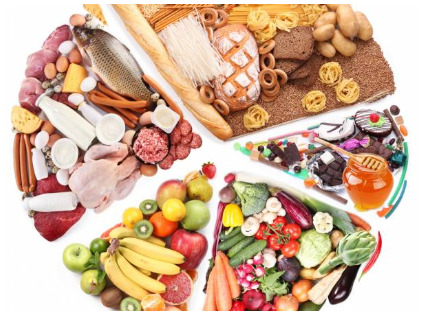It’s not unusual for people to develop bad habits, and they come part and parcel with a daily routine. There are many things, some of which we’re are all likely guilty of that contribute to ill health, yet we maintain them as bad habits. These take time to form, but even more, time to break. If you are guilty of any of the following terrible habits, then you are sabotaging your health and nutrition and need to make a change – now!
Binging
 No, you aren’t imagining it when you think that you just cannot stop yourself from indulging in low fiber, high salt, or high sugar snack, particularly those laden with partially hydrogenated fats or trans-fats! Refined and processed foods are the leading cause of obesity, and they are certainly addictive. Of course, it goes without saying that you should actually replace all snacks that fall into this category with helpings of fresh fruits or vegetables in any form! Even nuts, seeds, and dried fruits in moderation make for healthy snacks that can provide you with energy and nutrition at the same time.
No, you aren’t imagining it when you think that you just cannot stop yourself from indulging in low fiber, high salt, or high sugar snack, particularly those laden with partially hydrogenated fats or trans-fats! Refined and processed foods are the leading cause of obesity, and they are certainly addictive. Of course, it goes without saying that you should actually replace all snacks that fall into this category with helpings of fresh fruits or vegetables in any form! Even nuts, seeds, and dried fruits in moderation make for healthy snacks that can provide you with energy and nutrition at the same time.
Starving Yourself
We all know what leads to or follows a binge – starvation! Your body is going to be very confused when you overload it with copious amounts of food and then starve it. There’s just no healthy way around this. Okay, that’s actually not true because intermittent fasting is technically a form of starvation – however, we are not referring to fasting. We’re talking about starving yourself to the point where you lead yourself to binge-eating again. Intermittent fasting is a healthier habit to replace this vicious binge-and-starve cycle, but you need to be strong-minded and still count your calories so you do not overconsume in your eating window.
 Not Knowing Your Macros
Not Knowing Your Macros
If you have no idea what it is you are putting into your body each day, then you’re on a bad road. There is no success to be found in blind eating! You need to have some indication of the amount of protein, fats, and carbohydrates you consume, and you need to be trying to obtain your wide array of nutrients and minerals through colorful, fresh, and vibrant food! Excess calories are stored as fat, and if you don’t know how much you are consuming, the chances are pretty high that you are overeating.
Eating Too Fast
No, it isn’t your stomach that’s the boss when it comes to telling you how hungry or full you are – it’s the brain! So the next time you’re gobbling up a big meal in record time, just remind yourself that your brain won’t even realize you’ve eaten enough until 20 minutes afterward. By this time, you’ve loaded your body with unnecessary calories. Eat chewier foods — and preferably high fiber foods — to keep you eating slower than you are used to just until you develop a habit of eating slowly. Besides, isn’t it better to really enjoy and savor the flavor of food?
Skimping On H2O
If you aren’t drinking enough water throughout the day, it can be very easy for you to mistake your thirst for hunger. Water is absolutely essential for every cell throughout your body to receive the nutrients from your food and to function properly. Even the task of burning fat requires adequate hydration which cannot be achieved by gulping down a whole lot of water at once. Develop a habit of sipping on water all through the day and every part of your body will thank you for it – from the crown of your head to the tips of your toes.
 Not Moving Enough
Not Moving Enough
Exercise is immensely important for your body to be in good shape. Proper nutrition goes hand-in-hand with a good diet, and there is no way around this. Our bodies have been designed for movement, so embrace their beautiful form and get moving! Go for light activity at first and work your way up to a brisk walk and eventually to a run. You will feel worlds better!
Bad habits trickle down from you to those around you. Set an example by changing your bad habits into good ones – especially if you have children of your own or if you happen to be a child’s role model. Foster the importance of good health and proper nutrition in everyone around you!

 Not Knowing Your Macros
Not Knowing Your Macros Not Moving Enough
Not Moving Enough